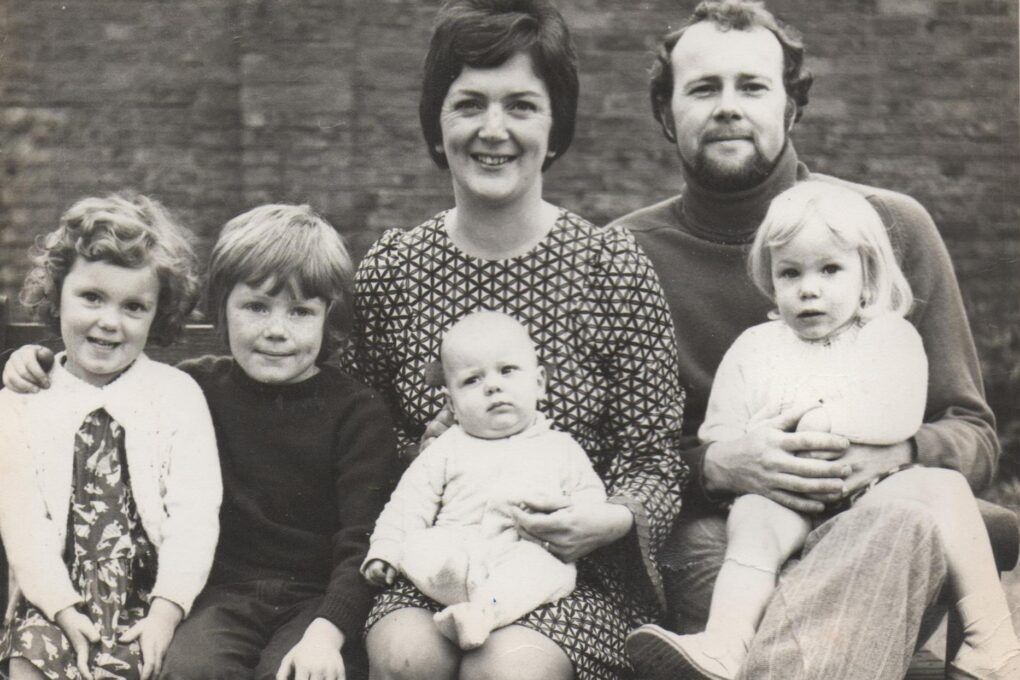‘I lost two children to cancer. I’m joining Our Future Health to help beat this devastating disease’

There’s no escaping it: the global cancer burden is growing. The World Health Organisation predicts that by 2050 new cancer cases will surge to over 35 million – a 77% increase from 2022.
The reality of this devastating disease is something 78-year-old David Olphin knows all too well.
David met his wife, Mo, on his 17th birthday in his hometown of Leicester. “That was a very good present indeed,” he says. “We married in 1967 and had four wonderful children – John, Jenny, Vicky and James. Our house was always the popular one, the one all the kids’ friends came over to.”
After a successful career in IT, David retired at the age of 59. “Our daughter, Vicky, had moved to New Zealand, so Mo and I decided we’d spend Christmas there with her, her husband and her daughter,” he says.
But shortly after David and Mo arrived in New Zealand, Vicky shared some shocking news.
An unexpected diagnosis
“Vicky told us that she’d found a tiny lump in her breast – as an ICU nurse, she regularly checked herself. After following up with her GP, she’d been diagnosed with stage 3 breast cancer.”
Breast cancer is the most common cancer in the UK, with 1 woman diagnosed every 10 minutes.
“She was quickly referred for a lumpectomy that had apparently gone perfectly,” explains David.
Being a fit and healthy 33-year-old with no family history of cancer, Vicky’s surgeon had been optimistic she’d make a full recovery.
Sadly, two years later the cancer came back. “This time it had spread from her lymph nodes into her breasts, her lungs and her spine. We flew out immediately to New Zealand to be with her.”
When they arrived, David and Mo were told by Vicky’s GP that she had two months to live. “It was a very emotional time, but Vicky was absolutely brilliant until the end,” says David. “She died from the lung cancer in 2008 at the age of 35.”
David still visits his granddaughter in New Zealand. “She’s just lovely. Sometimes it’s difficult to be with her because she looks and sounds so like her mother.”
‘To lose one child is impossible, but to lose two is unimaginable’

Eight years later, in 2016, David and Mo’s world was rocked again by cancer.
“Our eldest son John told us he’d been diagnosed with Non-Hodgkin lymphoma,” says David.
This is a type of blood cancer affecting white blood cells called lymphocytes. There are around 14,200 new Non-Hodgkin lymphoma cases in the UK every year, making it the 6th most common cancer.
John received his diagnosis in hospital on the Tuesday. He was told his cancer was quite advanced, so he’d start aggressive chemotherapy that Friday.
“Unfortunately, this was a day too late. That Thursday, due to his cancer, John had a pulmonary embolism causing heart failure,” David says. “Surgeons fought to save him, but he died, aged just 47. To lose one child is impossible, but to lose two is unimaginable.
“Mo never really recovered. She just slowly drifted away and died in 2019, aged 74.” A medic concluded that Mo had died of a broken heart.
“It was devastating to lose her. She was the most wonderful mother and a great wife to me.”
‘There’s still so much we don’t understand about cancer’
Though cancer survival rates are improving – with breast cancer survival doubling in the past 40 years and Non-Hodgkin lymphoma survival tripling in the last 50 years in the UK – David says there’s still so much progress to be made.
After losing Vicky and John, David spent several years volunteering on a chemotherapy day unit at Norfolk & Norwich University Hospital. “I saw how cancer affects people of all ages, shapes, sizes and backgrounds,” he says.
“Though science has made many advances over the years, there’s still so much we don’t understand about cancer. Why do some people get it and others don’t? I hope Our Future Health helps answer these questions.”

Our Future Health is aiming to help researchers develop new ways to understand, detect, treat and prevent diseases like cancer.
“I’m hopeful that healthcare can be improved for Jenny and James, for my grandchildren, and for other people too. The sooner we win the fight against cancer, the better.”
Hope for the future of healthcare
David says taking part in Our Future Health felt like a chance to give something back to the NHS.
“I regularly have lunch with a group of guys, all about my age. We’ve each been saved by the NHS at some stage – me after having a heart attack in 2011 and undergoing an emergency stent procedure. We joke that we’re on borrowed time, so we stay positive and enjoy things as much as we can.
“I just love life. It’s a gift. I hope Our Future Health benefits our health service and helps more people live life to the fullest.”
To learn more about breast cancer and Non-Hodgkin’s lymphoma, visit Breast Cancer Now, Blood Cancer UK and Cancer Research UK – affiliate charities of Our Future Health.

Let’s prevent disease together
By volunteering for Our Future Health, you can help health researchers discover new ways to prevent, detect and treat common conditions such as diabetes, cancer, heart disease, stroke and Alzheimer’s.